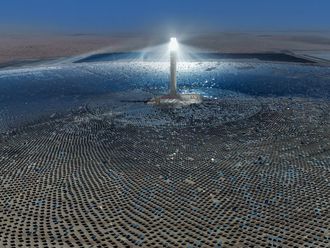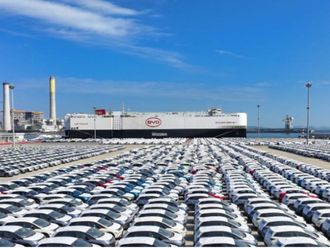Dubai: Iran plans to stop importing gasoline by March 2017 as a new refinery makes it self-sufficient in the motor fuel.
The first phase of the 360,000-barrel-a-day plant will be completed during the current Iranian year, which ends next March, according to the Oil Ministry’s news service Shana. Another two units will be ready in 2017.
The facility will process condensate, a light oil found in natural-gas deposits in the South Pars field. The refinery has been delayed by international sanctions that hampered Iran’s ability to complete major projects. The country, the Arabian Gulf’s biggest gasoline buyer before trade restrictions were imposed over its nuclear programme, has been able to buy fuel since reaching an agreement with world powers in January.
Iran won’t need to buy gasoline from abroad once the refinery’s first unit starts, Shana reported, without citing anyone. That will deprive regional traders of an import market of about 50,000 barrels, or 8 million litres, a day, according to figures from National Iranian Oil Refinery & Distribution Co.
Subsidy curbs
Gasoline imports slumped to almost zero in 2012 from more than 100,000 barrels a day before 2010, figures from the Joint Organisations Data Initiative show. The decline coincided with tighter sanctions on trade in refined products. Iran responded by trimming fuel subsidies to damp demand and ordering petrochemical plants to produce gasoline. Imports averaged about 33,500 barrels a day in the year through February, according to JODI data. Saudi gasoline imports were about four times as much.
The Gulf Star refinery is a joint venture, with NIORDC holding 18 per cent, Oil, Gas & Petrochemical Investment Co owning 49 per cent and the Oil Industry Pension Fund holding the remaining 33 per cent.
The facility will have capacity to produce 36 million litres of gasoline and 14 million litres of diesel a day when complete. Given the estimated 8 million-liter-a-day import market for gasoline, the country may be able to export some of the fuel.












